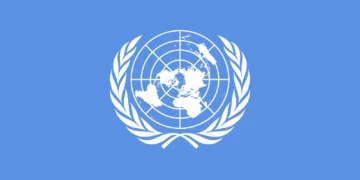The international community commemorated World Hepatitis Day (WHD), yesterday. The annual event is usually organized to raise awareness of the burden of viral hepatitis and to influence real change.
The theme for this year’s event, “We’re not waiting” is a call to action to accelerate elimination efforts of viral hepatitis, a group of infectious diseases known as hepatitis A, B, C, D, and E, and the urgent need for testing and treatment for those who need it.
The date, 28 July, was chosen because it is the birthday of Nobel-prize winning scientist, Dr Baruch Blumberg, who discovered hepatitis B virus (HBV) and developed a diagnostic test and vaccine for the virus.
The World Health Organisation (WHO), in it’s statement to commemorate the day, said there are over one million hepatitis-related deaths every single year, and one new chronic infection every ten seconds.
Combined, hepatitis B and hepatitis C cause 1.1 million deaths and three million new infections every year, with 350 million people living with chronic viral hepatitis infection.
The WHO added that 3,000 people die from hepatitis every day which equates one hepatitis death every thirty seconds.
“Over 8,000 new hepatitis B and C infections occur each day. That’s over five infections every minute.”
If the current trajectory continues, viral hepatitis, which means inflammation of the liver, could kill more people annually than malaria, tuberculosis and HIV/AIDS combined by 2040.
Although there are many different types of hepatitis viruses (A to E), hepatitis B and C are the most concerning and cause nearly 8000 new infections every day, which are mostly going undetected.
According to the health organisation, low coverage of testing and treatment is the most important gap to be addressed in order to achieve the global elimination goals by 2030.
Using the 9.5 per cent prevalence to Nigeria’s estimated 211.4 million population in 2021, the United Nations estimate that the prevalence figure translates into 20.083 million of Nigerians who have the virus.
According to the former minister of health, Dr Ehanire, though the country has more than 20 million people living with hepatitis B, C, or both; more than 80 per cent of the people who have the disease do not know their status.
Somehow, these millions have been missing in the public health space, not only in Nigeria but also in the global public health agenda.
In the opinion of this newspaper, so many hepatitis deaths could be prevented because there are vaccines and effective treatments for hepatitis B and even a cure for hepatitis C .
Most symptoms only appear once the disease is advanced, resulting in a huge volume of undiagnosed people living with hepatitis and, even after diagnosis, the level of treatment and care for people living with hepatitis is astonishingly poor.
When hepatitis is diagnosed, the number of people who go on to receive treatment is incredibly low as most people discover they have hepatitis B or C after many years of silent infection, and only when they develop serious liver disease or cancer.
Only 10 per cent of people with chronic hepatitis B are diagnosed, while only 22 per cent of those receiving treatment, that’s just two per cent of the total global health burden.
Similarly, only 21 per cent of people with hepatitis C are diagnosed, while 62 per cent of those diagnosed receive treatment to cure them, just 13 per cent of the total global health burden.
Due to poor level of awareness, most Nigerians still don’t know what Hepatitis is, as some people in the rural areas confuse Hepatitis with Hypertension.
Most worrisome is that nine out of 10 patients in Nigeria don’t even know they have the virus because it does not manifest symptoms on time.
Even after being confirmed positive, some Nigerians due to paucity of funds patronize local herb sellers for treatment and in most cases, the chemicals in the herbs aggravate the disease, affecting their kidneys, while increasing the risk of fatality.
There’s no gainsaying the fact that there’s so much to be done and many milestones to be covered by the government in order to reduce the fatalities arising from this silent killer.
Meanwhile, this newspaper has noticed a gradual shift of the government’s responsibility to non governmental organisations (NGOs) and philantrophic organisations like Rotary who have taken this public health concern as their project, as they engage in sensitisation, free screening and provision of free treatment for Nigerians.
Though commendable, we are calling on the health authority to take ownership by increasing it’s promotion of awareness of this deadly disease and provide screening and treatment when necessary for sufferers.
In our considered opinion, the federal government needs to commit adequate funding to eliminate the virus in the country.
Funding is extremely necessary to increase advocacy, public enlightenment, and access to diagnosis.





